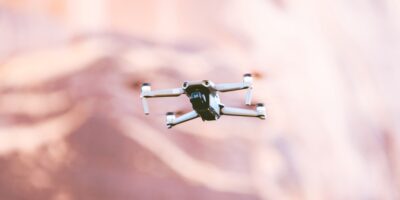Drones for the Energy Industry
Drones, or unmanned aerial vehicles (UAVs), have revolutionized many sectors. The energy industry is no exception. These aerial devices provide a range of benefits that enhance efficiency and safety.

Inspection and Maintenance
One primary application of drones in the energy sector is for inspection and maintenance. Traditionally, inspecting wind turbines, solar panels, pipelines, and power lines meant extensive manpower and time. With drones, companies can perform these inspections quickly and with greater accuracy.
Drones equipped with high-resolution cameras and sensors can capture detailed imagery and data. Operators analyze this data to identify issues such as cracks, corrosion, or inefficiencies in energy assets. This helps in timely maintenance and reduces the likelihood of unexpected failures.
Monitoring and Surveillance
Drones are also valuable for monitoring and surveillance. For example, in the oil and gas industry, maintaining security over vast areas is challenging. Drones can patrol and monitor remote or expansive sites with minimal human intervention.
They can detect unauthorized activities, hazardous leaks, or environmental changes. Thermal imaging cameras on drones help identify gas leakages, reducing environmental harm and potential financial loss.
Surveying and Mapping
Accurate surveying and mapping are crucial during the construction of energy projects. Drones equipped with LiDAR, photogrammetry, and other sensors produce detailed topographical maps. This data is essential for planning and executing projects like wind farms, solar parks, and pipelines.
UAVs can cover large areas quickly, providing high-resolution maps and 3D models. This assists engineers and project managers in making informed decisions, minimizing risks, and optimizing resource allocation.
Environmental Impact Assessments
Drones contribute significantly to environmental impact assessments (EIA). Conducting EIAs for energy projects traditionally involves ground surveys that can be time-consuming and disruptive. Drones offer a non-invasive alternative, gathering accurate data with minimal environmental disturbance.
They monitor wildlife, vegetation, and water bodies to assess potential environmental impacts. This information is crucial for obtaining regulatory approvals and implementing mitigation strategies.
Emergency Response
Drones play a critical role in emergency response scenarios. In the event of natural disasters or accidents, drones provide rapid aerial assessments. They offer real-time visuals, helping emergency teams to prioritize actions and allocate resources efficiently.
Additionally, drones can access hazardous or hard-to-reach areas without risking human lives. This capability is particularly useful for inspecting damaged infrastructure and planning repairs.
Cost Efficiency
The use of drones leads to significant cost savings. Reduced need for manual inspections, scaffolding, and other traditional methods cuts labor costs and time. The ability to quickly identify and address issues minimizes operational downtime, further enhancing cost efficiency.
Regulatory Compliance
Regulatory bodies in the energy sector demand compliance with various safety and operational standards. Drones help in meeting these requirements by ensuring thorough and accurate inspections. Detailed drone reports provide the necessary documentation to demonstrate compliance.
Advancements in Technology
Technological advancements continue to expand drones’ capabilities. Integration with artificial intelligence (AI) and machine learning enhances data analysis, enabling predictive maintenance and smarter decision-making. Innovations in battery life and payload capacity broaden the scope of drone applications.
Challenges and Considerations
Despite the benefits, there are challenges in deploying drones. Weather conditions can impact drone operations, and there are regulatory restrictions on UAV usage. Data security and privacy are also concerns as drones collect and transmit sensitive information.
Training and certification for drone operators are essential to ensure safe and effective use. Companies must invest in proper training programs and keep abreast of regulatory changes.
Future Prospects
The future of drones in the energy industry looks promising. Continuous technological innovations and increased regulatory clarity will pave the way for broader adoption. Drones will become integral to various energy operations, driving efficiency, safety, and sustainability.



Subscribe for Updates
Get the latest articles delivered to your inbox.
We respect your privacy. Unsubscribe anytime.